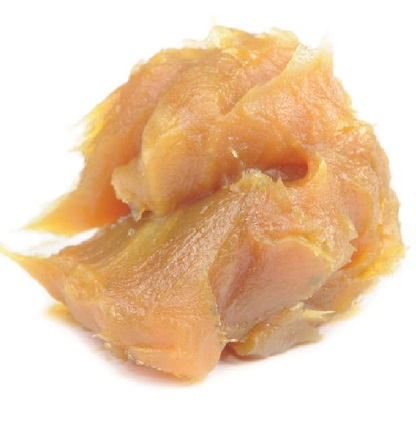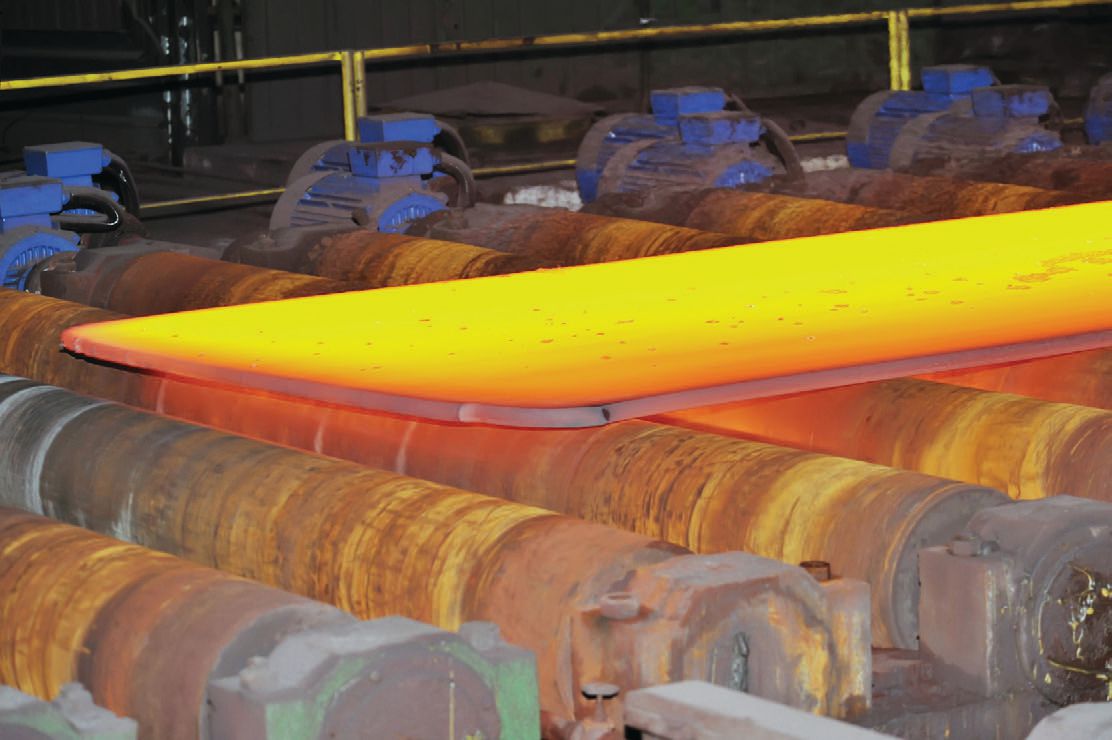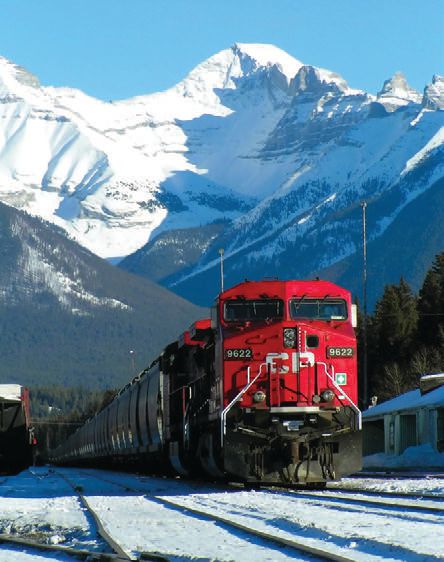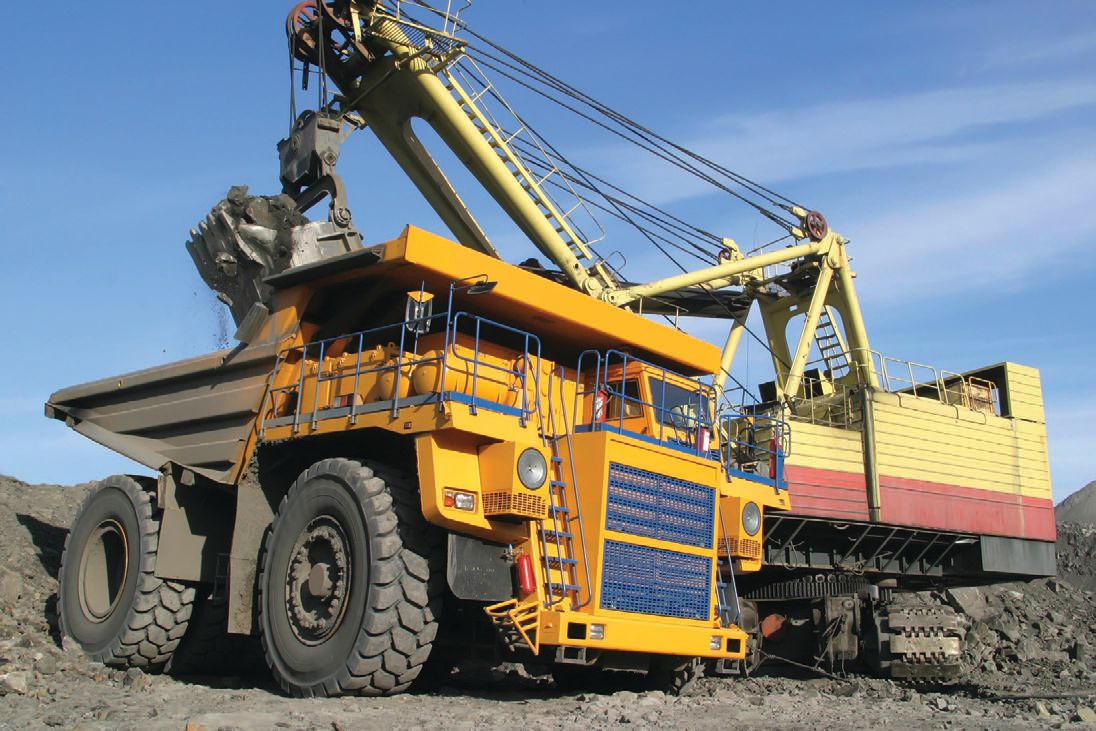A little dab will do ya
Dr. Robert M. Gresham, Contributing Editor | TLT Lubrication Fundamentals May 2013
One of lubrication’s unsung heroes, grease is a powerful and versatile performer that makes all our lives better.
 www.canstockphoto.com
www.canstockphoto.com
KEY CONCEPTS
•
One of our earliest lubricants, grease was used to lubricate axels on ancient chariots.
•
Grease has unique abilities, including staying in place, sealing, preventing leakages and bleeding, dampening noise, resisting vibration and mixing with solid additives.
•
Industries where grease is particularly useful include steel-making, mining, paper manufacturing, construction and food processing.
IF YOU WATCHED TV IN THE 1950s AND ’60s, you’ll recognize this month’s headline as the famous (and catchy) slogan from a men’s hair product called Brylcreem.
However, the line also can apply to one of the unsung heroes of the lubricants business. Yep, the material I’m referring to, in the words of Rodney Dangerfield, “don’t get no respect.” Clearly, I’m talking about grease.
Grease in its most primitive forms predates most any other kind of lubricant, the often-cited example being the animal fats used to lubricate ancient chariot wheels. In its more modern and sophisticated forms, grease can provide an enormous number of benefits to the user. For example, a little dab (believe me, it will do ya) applied to the right place prevents wear, reduces friction, inhibits rolling contact fatigue, provides rust and corrosion protection, inhibits oxidation/degradation and does not stiffen excessively in cold weather.
OK, oils can do those things too. But…
Grease also seals, dampens noise and vibration, minimizes leakage and oil bleeding, tolerates some degree of contamination and has reasonable resistance to shear softening. Further, grease can stay in place to lubricate vertical shafts. Its semisolid state enables it to resist leakage and loss because it forms a physical barrier seal against such airborne contaminants as moisture and dirt.
But our versatile friend doesn’t stop there. Grease also resists physical removal by water spray or centrifugal forces. Typically, it forms thicker lubrication films than oil with the same base oil viscosity. And grease can be formulated with solid additives such as molybdenum disulfide, graphite or PTFE without much fear of settling or separation.
Certainly, solid additives can be formulated into oils, but it is much more difficult to obtain stability (both physical and environmental). And the needed concentration of solids can be limiting.
Grease performs these miracles with a minimum of cost. That is, for many applications, except where central lube systems are involved, there is no need for tanks, reservoirs, pumps or piping. Indeed, greases can be manually applied by brushes, hand grease guns and other simple devices, and sealing systems can be less robust.
Thus, greases outperform oils where extended relubrication intervals are desired, leakage or housekeeping is an issue, effective environmental sealing is needed, where extreme conditions exist and where equipment and/ or budget constraints are a concern. However, oils outperform greases where heat removal, dirt removal and seal lubrication are mandatory.
Like oils, greases are made from high quality basestocks and additives. Like oils, the basestocks, whether mineral, synthetic or vegetable, must be of the correct viscosity. Additives must be chosen for the application and blended in the correct amounts. The choice of thickening agent (and there are many) also must be correct for the application in both type and amount. Indeed, many of the unique properties of greases often are a result of the particular thickener chosen.
Let’s look at several applications where grease earns respect.
 High temperatures and heavy shear are typical in steel mills. Frequently, high loads require potent extreme pressure additives.
STEEL MILLS
High temperatures and heavy shear are typical in steel mills. Frequently, high loads require potent extreme pressure additives.
STEEL MILLS
High temperatures and heavy shear are typical in steel mills. Frequently, high loads require potent extreme pressure additives. Cooling water necessitates resistance to water washout and spray-off. Depending on the location of the mill, low ambient temperatures can affect pumpability and grease delivery. Yet, properly formulated grease handles all these problems.
MINING
Greases used in mining must contend with such environmental extremes as hot and cold; water, dirt and other contaminants; and reduced pumpability due to distances from grease storage to lube points. Fortunately, formulating greases with solid additives can help support extremely heavy and shock loads.
PAPER MILLS
Applications in this environment invariably require resistance to water washout, spray-off and the effects of high shear and high temperature. Further, the methods used to composition and apply grease can affect paper color and quality. And greases here also must exhibit some compatibility with papermaking chemicals. Those are all tough assignments, but properly formulated and applied grease is completely up to the job.
CONSTRUCTION
Operation of heavy construction equipment often involves heavy and shock loads—fortunately, grease’s solid additives can help. And of course, the environment is rife with dirt and other contaminants, and most heavy machinery, whether in use or not, sits outside so a formulator must take into account the effect of water on grease and application. A key with heavy construction equipment is a good preventive maintenance program that takes into account the type and severity of equipment duty cycles.

RAILROAD
Trackside lubricators operate in extreme weather conditions and can deal with the high loads that occur when a train wheel slams into the outside curve rail. Since loads and scuffing are extreme, graphite and molydisulfide are commonly added to grease formulations. Also, in recent times rail lubrication strives to use biodegradable greases with enviro-friendly basestocks. On locomotives the fluid grease for traction motor (TM) gear cases commonly utilize high viscosity mineral base oils. However, more and more we are seeing high viscosity synthetic TM gear oils. Further, journal support bearings lubricated with oil are being replaced with roller bearings and grease lubrication in locomotives.
 Operation of heavy construction equipment often involves heavy and shock loads—fortunately, grease’s solid additives can help.
FOOD PROCESSING
Operation of heavy construction equipment often involves heavy and shock loads—fortunately, grease’s solid additives can help.
FOOD PROCESSING
In food processing plants, the FDA determines acceptable ingredients for food grade greases. In the past, USDA inspected and administered the program. The different grades of greases are H1 for incidental food contact, H2 where there is no food contact and H3 for direct food contact.
I could go on (and have), with examples from power generation, farming, oil field, textiles, metal processing and many more, all of which have their unique set of lubrication requirements. There are not many classes of materials I can think of that can be so uniquely tailored for so many specific and varied requirements.
Thus, grease really does deserve our respect. After all, just a little dab makes all our lives better.
 Bob Gresham is STLE’s director of professional development. You can reach him at rgresham@stle.org.
Bob Gresham is STLE’s director of professional development. You can reach him at rgresham@stle.org.